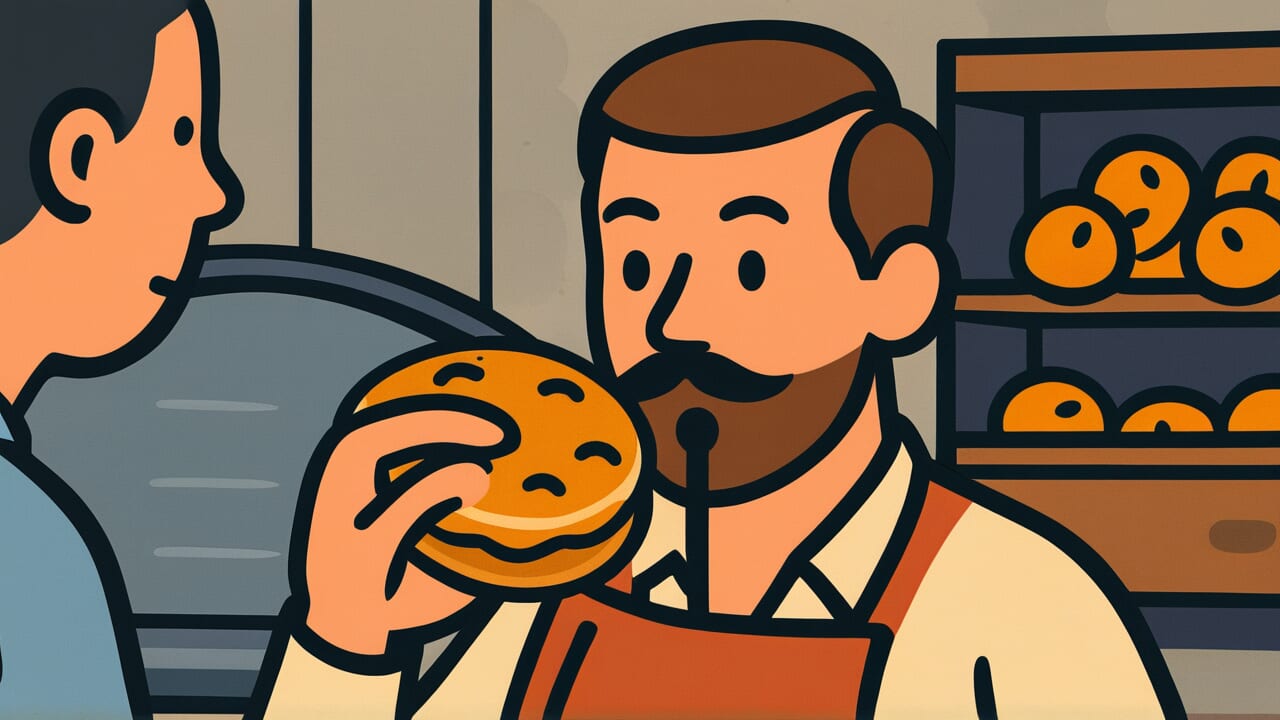How to Read “Rice you didn’t eat sticks to your beard”
kuwanu meshi ga hige ni tsuku
Meaning of “Rice you didn’t eat sticks to your beard”
“Rice you didn’t eat sticks to your beard” describes people who never actually participate or take action, yet complain and criticize as if they were directly involved. Eventually, these people end up losing out or embarrassing themselves.
This proverb is used to warn people who stand on the sidelines doing nothing, yet offer critical opinions about everything.
It criticizes the attitude of complaining from a safe distance while others work hard and take risks.
We still see this situation frequently today. Some people don’t join projects or take responsibility, but criticize the results afterward.
Others make no effort themselves, yet envy and complain about successful people.
This proverb teaches that such armchair critics ultimately lose opportunities for personal growth. They also lose the trust of those around them.
Origin and Etymology
No clear written records explain the origin of this proverb. However, we can make interesting observations from how the phrase is constructed.
“Rice you didn’t eat sticks to your beard” describes a physically impossible situation. How could rice you never ate end up on your beard?
This contradiction is the very heart of the proverb.
Someone who actually ate a meal might indeed get rice grains on their beard. But what does it mean if rice appears on your beard when you didn’t eat anything?
This likely satirizes people who act like they’re involved and speak up, even though they actually did nothing.
The most accepted theory suggests this ironic expression emerged from common culture during the Edo period.
In the merchant society of that time, people strongly criticized those who didn’t actually work but interfered in others’ jobs.
The proverb expressed the ridiculousness of such people through the everyday act of eating.
The sound of the phrase itself carries a spirit of light humor. Rather than preaching seriously, it points out human foolishness with humor.
This reflects the wisdom typical of Japanese proverbs.
Usage Examples
- You made no suggestions in the meeting but complained afterward. That’s like rice you didn’t eat sticking to your beard.
- If you don’t help but only criticize, that’s rice you didn’t eat sticking to your beard. Nobody will take you seriously anymore.
Universal Wisdom
“Rice you didn’t eat sticks to your beard” sharply exposes a fundamental human weakness. It reveals our contradictory desire to avoid risk while still wanting the right to speak.
Why do people want to criticize when they haven’t done the work themselves?
Criticizing makes them feel like intelligent people who understand things. They lack the courage to actually take action, but by acting like critics, they try to demonstrate their worth.
However, our ancestors saw through the emptiness of such attitudes. True wisdom can only come from actually doing the work, experiencing failure, and learning from it.
No matter how sharp a bystander’s criticism sounds, it cannot match even one failure by someone who actually tries.
This proverb has been passed down through generations because human nature hasn’t changed over time.
Modern social media overflowing with anonymous criticism is essentially the same as Edo-period gossip at the well. Words from those who don’t act carry little weight.
Eventually, nobody takes them seriously. This harsh but truthful observation of human nature is the core of this proverb.
When AI Hears This
The situation of rice sticking to your beard when you didn’t eat captures the essence of what information theory calls a “false positive error.” Evidence clearly exists, but the cause that evidence points to never actually happened.
Consider modern spam filters. When an email contains words like “free” or “act now,” the system judges it as spam with high probability.
But it might actually be a kind notice from a friend. The evidence exists (specific words), but the inferred cause (scam email) is wrong.
Rice on the beard is the same. The physical evidence is perfect, but the causal relationship doesn’t hold.
What’s interesting is that this error is probabilistically unavoidable. In medical cancer screening, lowering the false positive rate increases false negatives where real diseases get missed.
Strict security means innocent people get suspected. Loose security lets criminals escape.
This trade-off is a basic principle of “detection theory.” A perfect judgment system cannot theoretically exist.
What makes this proverb sharp is how it instantly shows the gap between evidence and truth.
Even with undeniable evidence of rice on the beard, the person might not have actually eaten. Someone might have put it there maliciously, or wind might have blown it there.
Just as AI image recognition mistakes cats for dogs, reasoning backward from evidence to cause has structural vulnerability where errors inevitably creep in.
Lessons for Today
This proverb teaches modern people that the right to speak is earned through action.
We all sometimes want to critique others from a safe place. Especially in the internet age, expressing opinions without showing your face or name has become easy.
However, truly valuable words come from your own experience of getting muddy.
If you feel dissatisfied with something, first ask yourself this question. “Have I taken any action regarding this problem?”
If the answer is no, take a step forward before criticizing, even a small one.
When you actually take action, you understand how difficult things are. What seemed simple turns out to involve complex, intertwined factors.
The learning you gain from that experience is more valuable than any criticism.
If you want your words to carry weight, first take action. Don’t fear failure and become someone who challenges themselves.
Then your opinions will naturally reach people’s hearts. That is the timeless truth this proverb conveys.



Comments